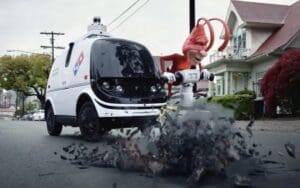 The Noid is back. For those unfamiliar, let me explain. In 1986, when Domino’s Pizza was pushing its 30-minute delivery timeframes, it introduced the Noid in its advertising campaigns. The Noid, wearing a red skin-tight suit with rabbit ears, was a “physical manifestation of all the challenges inherent in getting a pizza delivered in 30 minutes or less.” Domino’s was always able to thwart the Noid’s efforts and make the delivery on time. As I wrote about two weeks ago, Domino’s is now partnering with Nuro in Houston to make robocar deliveries. To celebrate the partnership, Domino’s brought back the Noid in a new 30 second spot, showing how it tries to disrupt the autonomous vehicle from reaching its destination. Watching the commercial definitely made me feel nostalgic for the good old days of 80’s cartoon mascots. You can watch the full spot here; I won’t spoil the outcome for you. And now on to this week’s logistics news.
The Noid is back. For those unfamiliar, let me explain. In 1986, when Domino’s Pizza was pushing its 30-minute delivery timeframes, it introduced the Noid in its advertising campaigns. The Noid, wearing a red skin-tight suit with rabbit ears, was a “physical manifestation of all the challenges inherent in getting a pizza delivered in 30 minutes or less.” Domino’s was always able to thwart the Noid’s efforts and make the delivery on time. As I wrote about two weeks ago, Domino’s is now partnering with Nuro in Houston to make robocar deliveries. To celebrate the partnership, Domino’s brought back the Noid in a new 30 second spot, showing how it tries to disrupt the autonomous vehicle from reaching its destination. Watching the commercial definitely made me feel nostalgic for the good old days of 80’s cartoon mascots. You can watch the full spot here; I won’t spoil the outcome for you. And now on to this week’s logistics news.
- Panasonic to acquire Blue Yonder
- Amazon and Nestle join public-private plan to save world’s forests
- AB InBev’s 100+ Accelerator gets Coca-Cola, Unilever, and Colgate-Palmolive
- Amazon expands service to drop off groceries in customers’ garageGrocery delivery is driving Walmart+ membership growth
- Apple establishing $100M distribution center in Hendricks County
- FedEx, Adobe agree to integrate e-commerce sales, service platforms
- Truck driving shortage impacting cost of goods
![]() Late last week, Panasonic announced it will acquire Blue Yonder in a deal valued at $7.1 billion. The figure includes Panasonic’s purchase of the remaining 80 percent of shares in Blue Yonder for $5.6 billion, plus debt repayment. This acquisition builds on the Panasonic/Blue Yonder strategic relationship, established in January 2019 with a partnership, followed by the creation of a joint venture company in Japan in November 2019. According to a release from Panasonic, the acquisition brings together Blue Yonder’s end-to-end supply chain software, which uses artificial intelligence, with Panasonic’s autonomous solutions, to form “autonomous enhancement of the whole supply chain.” The transaction has been approved by the Boards of Directors of both Panasonic and Blue Yonder. The deal is intended to close by the second half of this fiscal year and is subject to receipt of customary regulatory approvals.
Late last week, Panasonic announced it will acquire Blue Yonder in a deal valued at $7.1 billion. The figure includes Panasonic’s purchase of the remaining 80 percent of shares in Blue Yonder for $5.6 billion, plus debt repayment. This acquisition builds on the Panasonic/Blue Yonder strategic relationship, established in January 2019 with a partnership, followed by the creation of a joint venture company in Japan in November 2019. According to a release from Panasonic, the acquisition brings together Blue Yonder’s end-to-end supply chain software, which uses artificial intelligence, with Panasonic’s autonomous solutions, to form “autonomous enhancement of the whole supply chain.” The transaction has been approved by the Boards of Directors of both Panasonic and Blue Yonder. The deal is intended to close by the second half of this fiscal year and is subject to receipt of customary regulatory approvals.
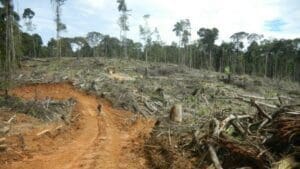 The US, Norway, and Britain joined forces with companies including Amazon and Nestle to launch a project aimed at protecting the world’s tropical forests. Announcing the Lowering Emissions by Accelerating Forest finance (LEAF) Coalition at the US-convened leaders summit on climate, the public-private project aims to raise at least $1 billion in initial financing, it said. Governments and companies taking part will pay countries with tropical and subtropical forests for emissions reductions, a move it hopes will help reduce and eventually end deforestation. Companies looking to take part in the project will only be allowed to join if they can show a commitment to “deep voluntary cuts” in their own emissions, in line with science-based targets and the Paris Agreement on climate. Applications are due by July 2021, with the program looking to reduce deforestation between 2022 and 2026.
The US, Norway, and Britain joined forces with companies including Amazon and Nestle to launch a project aimed at protecting the world’s tropical forests. Announcing the Lowering Emissions by Accelerating Forest finance (LEAF) Coalition at the US-convened leaders summit on climate, the public-private project aims to raise at least $1 billion in initial financing, it said. Governments and companies taking part will pay countries with tropical and subtropical forests for emissions reductions, a move it hopes will help reduce and eventually end deforestation. Companies looking to take part in the project will only be allowed to join if they can show a commitment to “deep voluntary cuts” in their own emissions, in line with science-based targets and the Paris Agreement on climate. Applications are due by July 2021, with the program looking to reduce deforestation between 2022 and 2026.
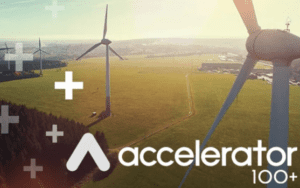 In other sustainability news, the InBev 100+ Accelerator is adding some big-name companies: Coca-Cola, Colgate-Palmolive, and Unilever. The 100+ Accelerator was launched in 2018 as a global incubator program to help solve supply chain challenges across water stewardship, circular economy, sustainable agriculture, and climate action. The partners help to fund and pilot start-ups in their sustainability innovation plans. So far, the 100+ Accelerators start-ups have green cleaning solutions to reduce water waste and energy use, collected more than 1,000 tons of glass waste, recycled electric vehicle batteries that store renewable electricity, and installed the first solar thermal system at an AB InBev plant.
In other sustainability news, the InBev 100+ Accelerator is adding some big-name companies: Coca-Cola, Colgate-Palmolive, and Unilever. The 100+ Accelerator was launched in 2018 as a global incubator program to help solve supply chain challenges across water stewardship, circular economy, sustainable agriculture, and climate action. The partners help to fund and pilot start-ups in their sustainability innovation plans. So far, the 100+ Accelerators start-ups have green cleaning solutions to reduce water waste and energy use, collected more than 1,000 tons of glass waste, recycled electric vehicle batteries that store renewable electricity, and installed the first solar thermal system at an AB InBev plant.
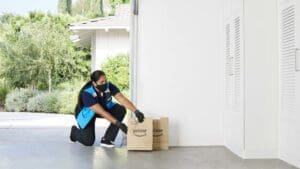 As grocery delivery continues to grow, Amazon is expanding its service that lets delivery people drop off groceries inside your garage. The company announced earlier this week that the service is now available for all Prime members where grocery delivery is available, which includes more than 5,000 cities across the US. Previously, some Prime members could get Amazon Fresh orders and Whole Foods deliveries dropped off in their garage, but only if they lived in Chicago, Dallas, Los Angeles, San Francisco, or Seattle. The offering is a part of Amazon Key, the company’s array of services that enable delivery drivers to leave packages in garages, homes, cars and businesses. In-home delivery requires a smart lock and a camera, while in-garage delivery requires a smart garage door opener.
As grocery delivery continues to grow, Amazon is expanding its service that lets delivery people drop off groceries inside your garage. The company announced earlier this week that the service is now available for all Prime members where grocery delivery is available, which includes more than 5,000 cities across the US. Previously, some Prime members could get Amazon Fresh orders and Whole Foods deliveries dropped off in their garage, but only if they lived in Chicago, Dallas, Los Angeles, San Francisco, or Seattle. The offering is a part of Amazon Key, the company’s array of services that enable delivery drivers to leave packages in garages, homes, cars and businesses. In-home delivery requires a smart lock and a camera, while in-garage delivery requires a smart garage door opener.
 Grocery delivery is also driving the growth of membership programs. For Walmart, grocery has been a big driver for the growth in Walmart+, the company’s answer to Amazon’s Prime membership program. The program costs $98 a year, and includes unlimited free delivery from stores, including groceries, plus gasoline discounts. In just seven months, the Walmart+ membership program has built a base of more than 60 million US. Consumers. While this number is still about 100 million less that Prime members, that margin has narrowed by about 30 million subscribers over the four months. As Walmart continues to push for grocery delivery, and the benefits associated with the Walmart+ membership, analysts see that gap continuing to close.
Grocery delivery is also driving the growth of membership programs. For Walmart, grocery has been a big driver for the growth in Walmart+, the company’s answer to Amazon’s Prime membership program. The program costs $98 a year, and includes unlimited free delivery from stores, including groceries, plus gasoline discounts. In just seven months, the Walmart+ membership program has built a base of more than 60 million US. Consumers. While this number is still about 100 million less that Prime members, that margin has narrowed by about 30 million subscribers over the four months. As Walmart continues to push for grocery delivery, and the benefits associated with the Walmart+ membership, analysts see that gap continuing to close.
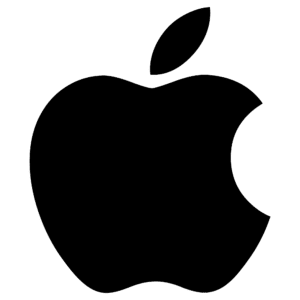 Earlier this week, Apple announced plans to invest $430 billion and create as many as 20,000 new jobs across the US during the next five years. Part of this plan is to speed up its supply chain, primarily with a $100 million distribution center in Hendricks County, creating up to 500 jobs by the end of 2024. The hub, to be located west of Plainfield in Clayton, is part of Apple’s plans to expand its distribution network and accelerate delivery times for US customers in Indiana and across the country. The distribution hub will be operated by XPO Logistics Supply Chain, which has already started hiring. Apple’s Advanced Manufacturing Fund is financing the project.
Earlier this week, Apple announced plans to invest $430 billion and create as many as 20,000 new jobs across the US during the next five years. Part of this plan is to speed up its supply chain, primarily with a $100 million distribution center in Hendricks County, creating up to 500 jobs by the end of 2024. The hub, to be located west of Plainfield in Clayton, is part of Apple’s plans to expand its distribution network and accelerate delivery times for US customers in Indiana and across the country. The distribution hub will be operated by XPO Logistics Supply Chain, which has already started hiring. Apple’s Advanced Manufacturing Fund is financing the project.
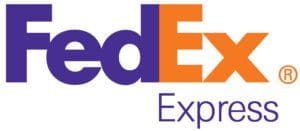 As e-commerce continues to grow, more and more retailers are trying to find ways to compete with Amazon. And these retailers could certainly use some help. FedEx and Adobe are teaming up to offer this help, announcing a deal aimed at helping retailers meet e-commerce demand by sharing data across digital sales and distribution networks. Adobe is integrating FedEx’s recently acquired ShopRunner e-commerce service, which provides expedited delivery from more than 100 merchants, with the software provider’s digital commerce platform. The agreement will help businesses that sell on Adobe’s platform offer free two-day shipping and other services, such as easy returns.
As e-commerce continues to grow, more and more retailers are trying to find ways to compete with Amazon. And these retailers could certainly use some help. FedEx and Adobe are teaming up to offer this help, announcing a deal aimed at helping retailers meet e-commerce demand by sharing data across digital sales and distribution networks. Adobe is integrating FedEx’s recently acquired ShopRunner e-commerce service, which provides expedited delivery from more than 100 merchants, with the software provider’s digital commerce platform. The agreement will help businesses that sell on Adobe’s platform offer free two-day shipping and other services, such as easy returns.
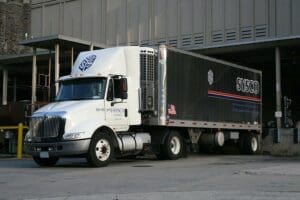 Increased demand for consumer goods, especially as the pandemic has lingered on, are exacerbating the capacity crunch. And a nationwide shortage of truck drivers is making things worse, helping to drive up prices at stores across the country. According to the American Trucking Association (ATA), almost 75 percent of all freight is transported by truck. The ATA estimates the industry will need a million more drivers over the next decade and could use about 100,000 more right now. A lack of drivers is causing delays which is part of the reason deliveries are starting to cost consumers more. Add in rising fuel, equipment, and insurance costs, and the prices continue to climb.
Increased demand for consumer goods, especially as the pandemic has lingered on, are exacerbating the capacity crunch. And a nationwide shortage of truck drivers is making things worse, helping to drive up prices at stores across the country. According to the American Trucking Association (ATA), almost 75 percent of all freight is transported by truck. The ATA estimates the industry will need a million more drivers over the next decade and could use about 100,000 more right now. A lack of drivers is causing delays which is part of the reason deliveries are starting to cost consumers more. Add in rising fuel, equipment, and insurance costs, and the prices continue to climb.
That’s all for this week. Enjoy the weekend and the song of the week, the Beatles’ Get Back.

















